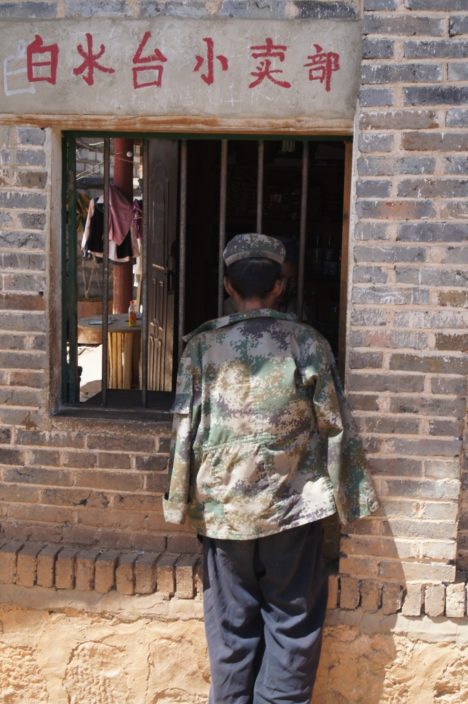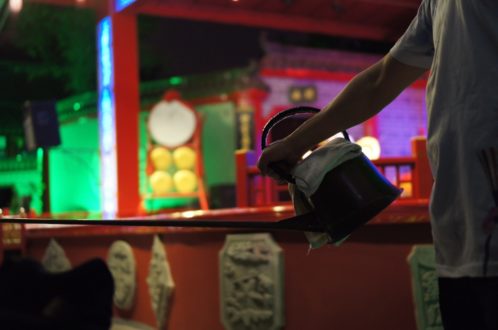China is weird. On the surface China looks fairly normal, but after spending some time there you start noticing how weird and absurd it is. Toddlers, for example, have their trousers slitted in the back for easy defecating anytime and anywhere. Deodorant is virtually unknown and attempts to buy one were met with offers of an insect repellent. People in parks walk backwards while clapping their hands, purposedly for health benefits. Another example is traffic. At first sight it looks organised and neat and definitely less chaotic than in an average Asian country, but after a while you realise that under this veil of order and structure there is a total chaos. Traffic lights are just for reference, as well as road directions. There is no concept of yielding to pedestrians. Drivers rather speed up and overtake a pedestrian, only to stop a traffic jam some meters later. All these little absurdities add up, until it becomes too much to bear. After a week in China, I realised that no matter what I do, I will be poorly understood and people will stare at me anyway. Thus madness ensued. I explained strange things to strangers in Finnish, yelled random things in Russian and just acted weirdly all around. My girlfriend, on her part, turned into an angry bitch periodically getting China rages. Dark stuff.
China is difficult. English is generally not understood at all, even on a very basic level. No basic words, no numbers, not even “yes” or “no”. Just nothing. There is almost zero effort among Chinese to understand you either. After a few unsuccessful communication attempts, locals just give up on you. Having a basic command of Chinese is a must for travelling in China. There are so many domestic tourists in China that there is little effort to tailor tourist services to international clientele. At times I felt unwelcome and wondered what I was doing in China in the first place.
Travelling around China poses its own challenges too. Buses and especially trains are crowded and tickets are often sold out. Booking tickets at least several days in advance is usually a good idea. That goes even more true for the festival season, which seems to be on in some form during the entire spring. On top of that China is surprisingly expensive too. We spent more money in China than anywhere else. Flying out of China on a week notice and enjoying excellent food contributed a lot to the expenses, but apart from that everything else seemed to be more expensive than the last time I travelled to China three years ago.
The last time I visited China I mostly liked it. There were some misunderstandings and problems in communication, but no dramatic experiences. This time the China experience was an emotional roller coaster. At times we hated it all and wanted to just get out of the country as soon as possible. But at other times it was not all that bad and made all the hassle almost worth it. This made me think that you do not really experience China, until you begin to hate it. Sharing my experience with other travellers and expats confirmed my theory. On the last day of our stay in China we went to Sichuan opera. It was a fabulous, well-made show with dance, music, comedy and whatsoever, but it made little sense to us. Just like China – well executed, but made no sense to an outsider.




















